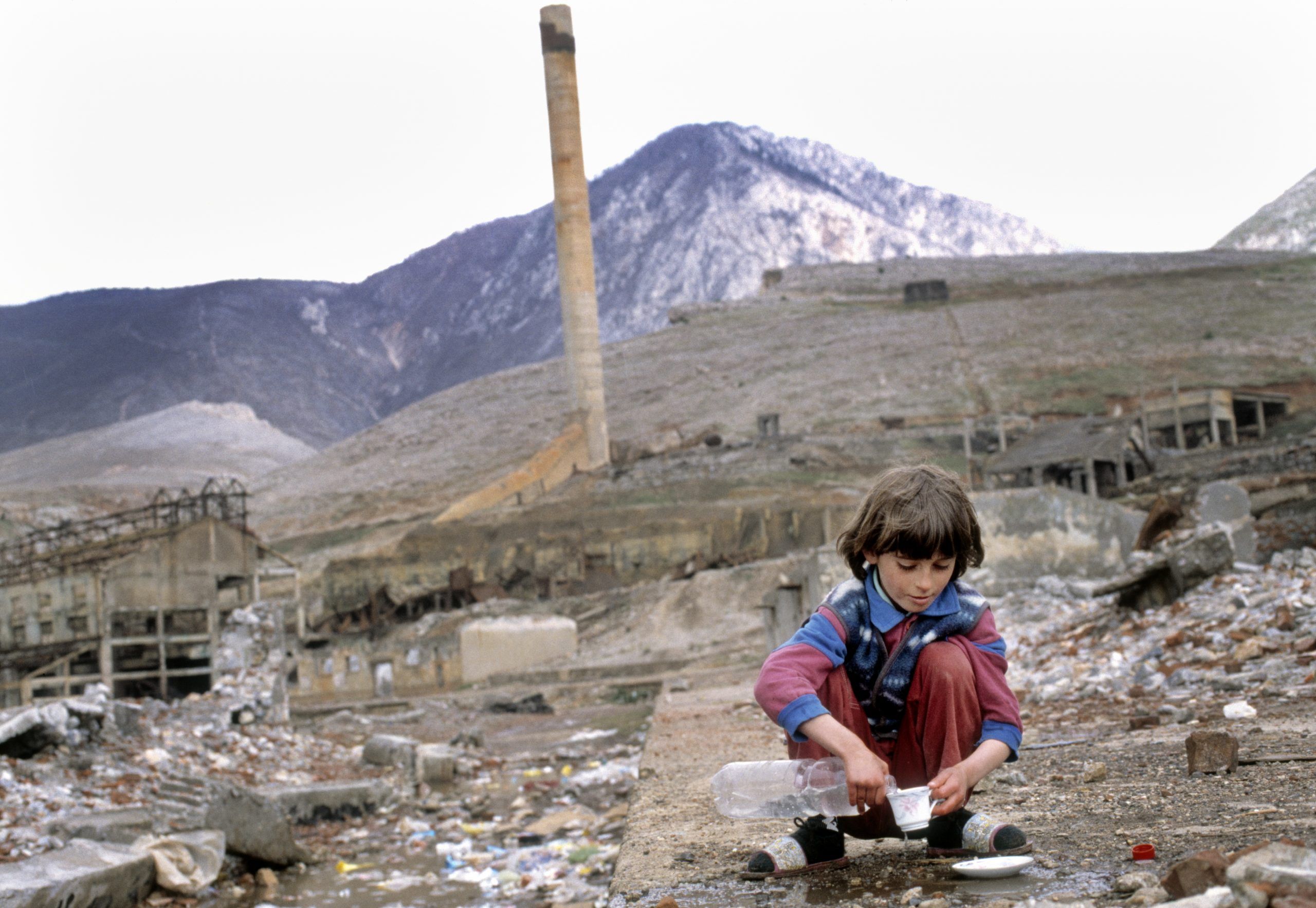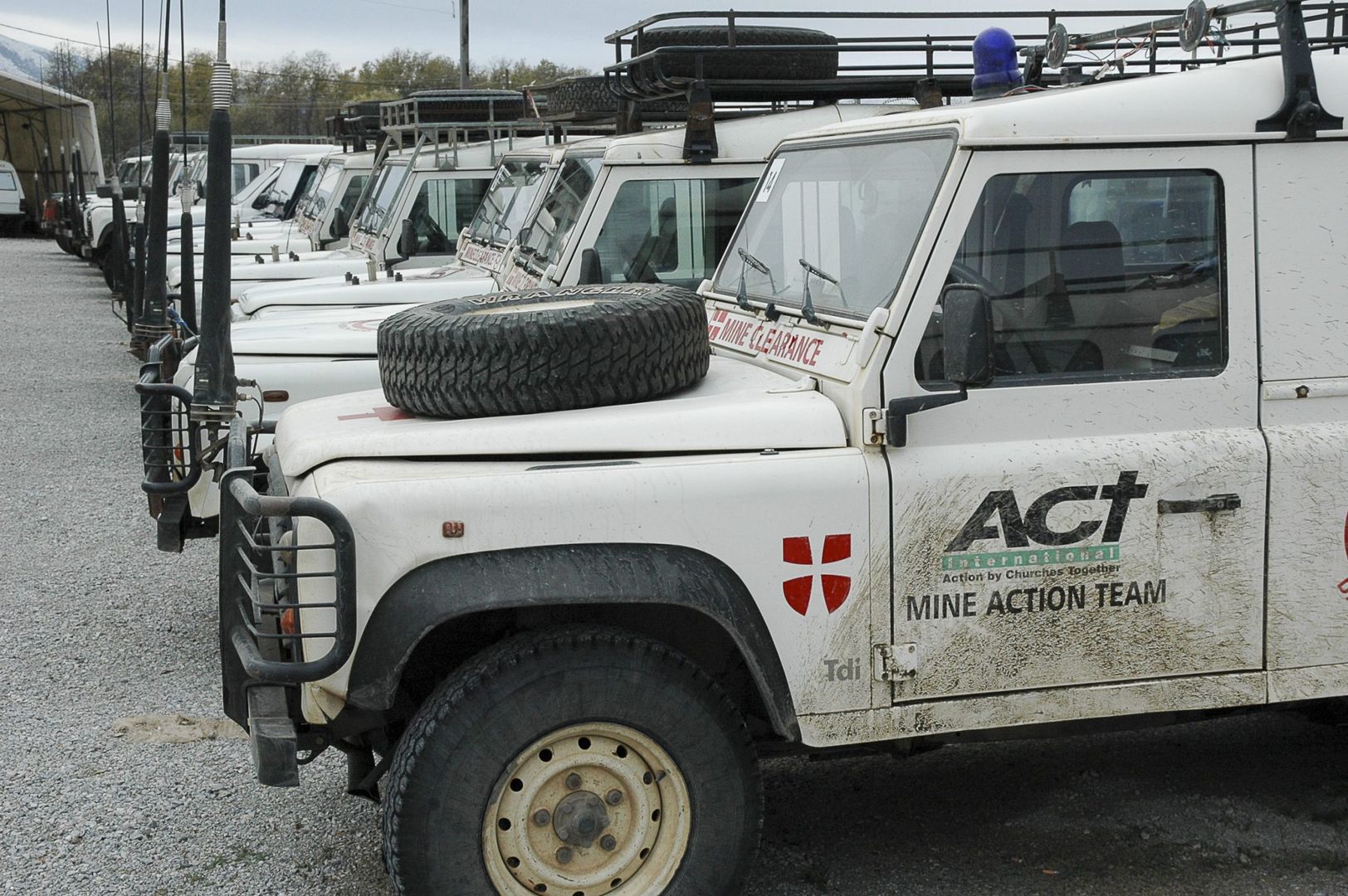The wars in the Balkans
It began in Slovenia in 1991 and ended in Kosovo in 1999. During that period, the former Yugoslavia was hit by a wave of civil wars involving landmines and terrorist bombs, massacres, ethnic cleansing, rape, and hundreds of thousands of refugees.
Over 150,000 people were killed, many more were wounded, and millions of people were driven from their homes during the series of military conflicts that, taken together, became the largest humanitarian disaster in Europe since World War II.
As part of the newly established international relief organisation ACT, Action by Churches Together, DanChurchAid was involved in the aid work to provide help with immediate needs in the form of tents, blankets, food, and medicine, and to assist in the extensive reconstruction work. In addition, on behalf of ACT, DanChurchAid was responsible for clearing landmines and unexploded cluster bombs after the war in Kosovo.
DanChurchAid was given responsibility for clearing mines in Kosovo on behalf of a partnering organisation, ACT International. This became the start of a huge mine clearance programme in several countries.
It involved 800 minefields in an area the size of Cyprus. In 1999, the war in Kosovo left the country as one of the most densely mine-ridden areas in the world.
Most of the mines were planted by the Serbian army. The rest were placed by the KLA, the Kosovo Liberation Army. In addition, NATO bombing had left behind unexploded cluster bombs. This meant that thousands of refugees returned from neighbouring countries to risk being killed or maimed.
The humanitarian demining program
DanChurchAid had already supported humanitarian mine clearance in Angola and Cambodia but had no experience in carrying out the work itself.
Nevertheless, on behalf of the newly formed faith-based coalition ACT International (Action by Churches Together), DanChurchAid was given the task of clearing mines and informing the population in Kosovo of the dangers of mines.
Refugees can return home
It was the start of a comprehensive mine clearance programme that has subsequently become a central part of the work of DanChurchAid.
Birgitte Qvist-Sørensen explains: “Clearing landmines and ammunition is a prerequisite for refugees being able to return home and resume their lives after war. Peace rests on the premise that people can return home without fear of stepping on a landmine or a bomb.”
Mines near schools
In Kosovo, the mines were laid in the cruellest ways, typically hidden close to houses, schools, wells, market areas, and fields.Sam Christensen was employed to lead DanChurchAid’s demining efforts.
More than 600 civilians were killed or seriously injured because they came in close contact with mines or cluster bombs. It was therefore necessary to teach children and adults to be careful and avoid kicking or picking up objects that looked suspicious.

“Do not touch it”
“We started the mine awareness campaign in Albania, but the refugees were returning home, so we moved into Kosovo.” says Sam Christensen.
The job was to clear as many mines and cluster bombs as quickly as possible so that people could move around again safely and start rebuilding their homes and cultivating their land.
Centimetre by centimetre, the deminers worked carefully with metal detectors, mine prodders, and grass clippers. Every time a mine was found, a special procedure was started to disarm and remove the mine for destruction.
Trained local deminers
Clearly, it requires special training to identify and eliminate landmines and to inform the local population about the mines. However, instead of sending hordes of foreign experts to Kosovo for the clean-up, DanChurchAid chose to train local people to perform the mine clearance.
Hundreds of local men and women were trained in a very short time. Over the subsequent years, together with other mine clearance teams, they removed most mines and cluster bombs so that everyone could move freely again.
However, clearing mines is extremely dangerous, and DanChurchAid was not able to avoid accidents. Therefore, DanChurchAid constantly improves safety measures and complies with international safety standards.
Among the world’s leaders
After Kosovo, several locally trained ammunition and mine clearance teams continued to train local clearance teams in Albania, Angola, Lebanon, and South Sudan, and DanChurchAid became one of the world’s leading organisations in terms of ammunition and mine clearance.
Ammunition and mines can be found virtually anywhere – in houses, schools, hospitals, gardens, parks, valleys, and picnic areas and on paths, roads, hills, and farmland. This makes clearing mines extremely time-consuming, and it takes place one centimetre at a time.
Since 2008, when precise data started being collected, DanChurchAid has cleared mines and ammunition from a total area of about 200 km2 – in DR Congo, Libya, Iraq, and Syria as well as in the countries listed above.
DanChurchAid: 100 YEARS OF HOPE AND ACTION
2022 marks the 100th anniversary of DanChurchAid’s work to save lives, build resilient communities, and fight extreme inequality worldwide.
DCA’s anniversary is a story of 100 years of hope.

